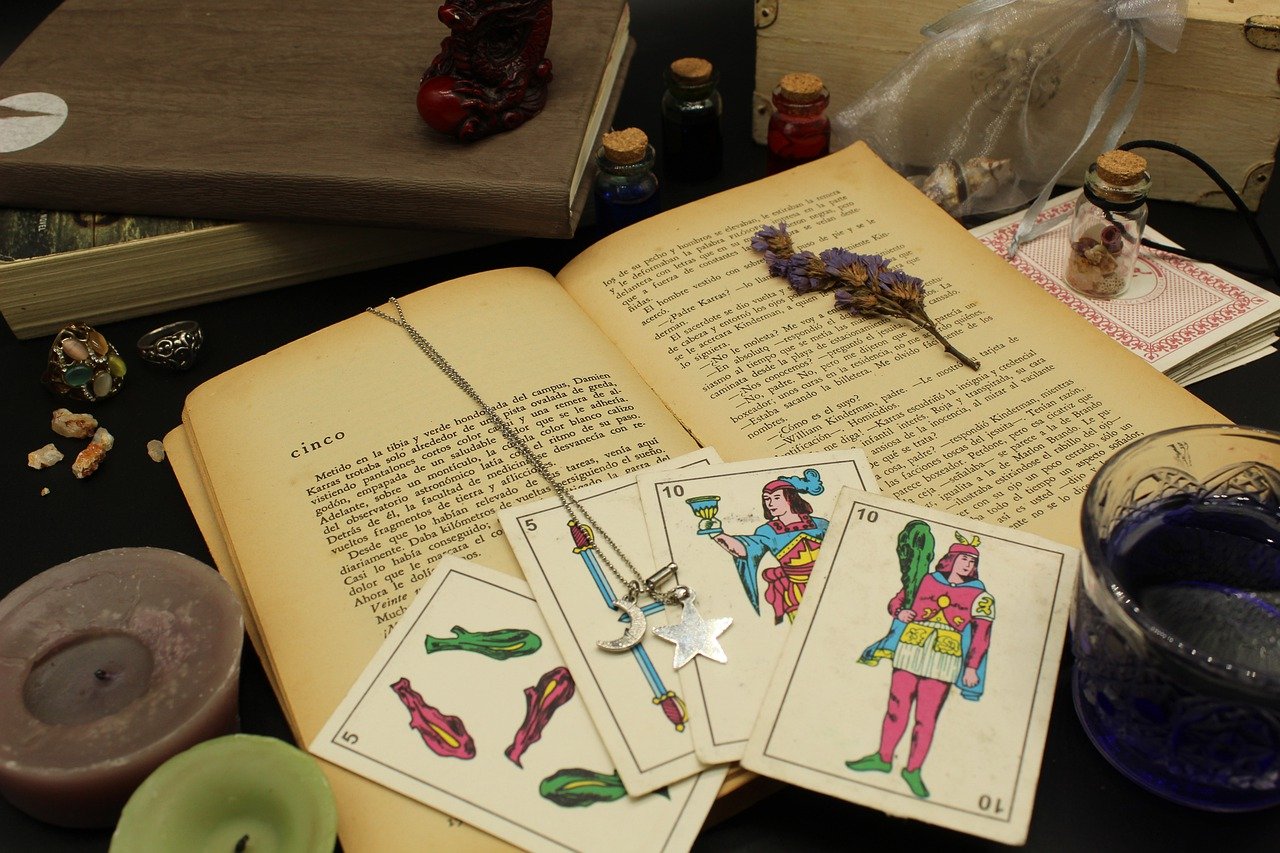The Bard smiles slightly, lifting up on her toes as she leans forward. The goblin has backed her into a corner, but she’s still got a few tricks up her sleeve, like dissonant whispers. She opens her mouth, and a haunting tune comes out, soundly strange and repellant in the ears of the goblinoid. The goblin regards the Bard with fear and suspicion, covering its ears and desperately moving out of range.
Table of Contents
How The Spell Works
The spell’s text from the Player’s Handbook reads: You whisper a discordant melody that only one creature of your choice within range can hear, wracking it with terrible pain. The target must make a Wisdom saving throw. On a failed save, it takes 3d6 psychic damage and must immediately use its reaction, if available, to move as far as its speed allows away from you.
The creature doesn’t move into obviously dangerous ground, such as a fire or a pit. On a successful save, the target takes half as much damage and doesn’t have to move away. A deafened creature automatically succeeds on the save. When you cast the spell at higher levels, the damage increases by 1d6 for each slot level above 1st.
Who Gets Dissonant Whispers
Dissonant whispers is only available on the Bard spell list. Anyone can access this spell by taking the Magic Initiate feat and selecting Bard. However, it also appears on the Warlock spell list if you choose the Great Old One patron as an optional spell that you can select. Keep in mind that it is not automatically prepared because Warlocks are learned casters.
What Are The Uses
Dissonant whispers is an enchantment spell that starts at 1st level. It only has verbal components and has a casting time of one action. One of the most common use cases is when a Bard (presumably not a College of Swords or College of Valor Bard) is pinned down in melee by an opponent. If your target fails its Wisdom saving throw, it has to immediately use its action to get away from you.
The range is 60 feet, though, so you could potentially use the spell on an opponent who is already far away from you, possibly to force them into a trap. However, you need to be careful if that’s your plan because dissonant whispers specifically states that your target will not move into obviously dangerous areas. If the trap is hidden, or you’re waiting for your friends to spring it, the spell would still work, though.
It’s worth noting that if the creature has already used its reaction for the round, the rider effect won’t do anything. When dealing with targets who have Legendary Reactions, the wording of the spell seems to indicate that the creatures would be compelled to still use up their Legendary Reaction to move away from you, but you should check with your DM first.
The fact that dissonant whispers deals psychic damage is nice because it’s very rare for an enemy to resist that. Not to mention the fact that many enemies are only okay at Wisdom saving throws. With those, you want to watch out if you’re dealing with beasts or aberrations since they often have proficiency or high Wisdom scores, but many other enemy types use Wisdom as a dump stat.
Comparable Spells
There are a few comparable spells. Arms of Hadar, a Warlock-exclusive spell, does damage and prevents targets who fail their saving throws from taking reactions until their next turn, possibly giving you or your friends time to escape from melee. The main differences are that arms of Hadar don’t actually move your targets, they must make Strength saving throws, and the spell is capable of targeting multiple creatures at once.
Similarly, the 4th level spell compulsion forces a creature to go in a direction you choose as long as it isn’t obviously deadly terrain. Note the wording here, which gives the same examples of places they won’t move (fire or a pit) as dissonant whispers.
If you’re looking for something that can push your enemy wherever you want, obviously dangerous terrain included, you’ll need to rely on something like Bigby’s hand or command. On the other hand, if you’re simply looking for a way to ensure that a creature can’t make an attack of opportunity against you when you get out of Dodge, Tasha’s hideous laughter is a much better spell at the same level.
In Summary
Dissonant whispers isn’t a bad spell, and it certainly comes in handy if you have a low AC (and/or hit points) and frequently find yourself in nonconsensual melee fighting, but Bards are learned casters and must be very picky about their spells. While there are some things to recommend dissonant whispers, College of Valor and Sword Bards won’t want to waste one of their precious known spells on it. Even other college Bards may not be able to compromise for it.


